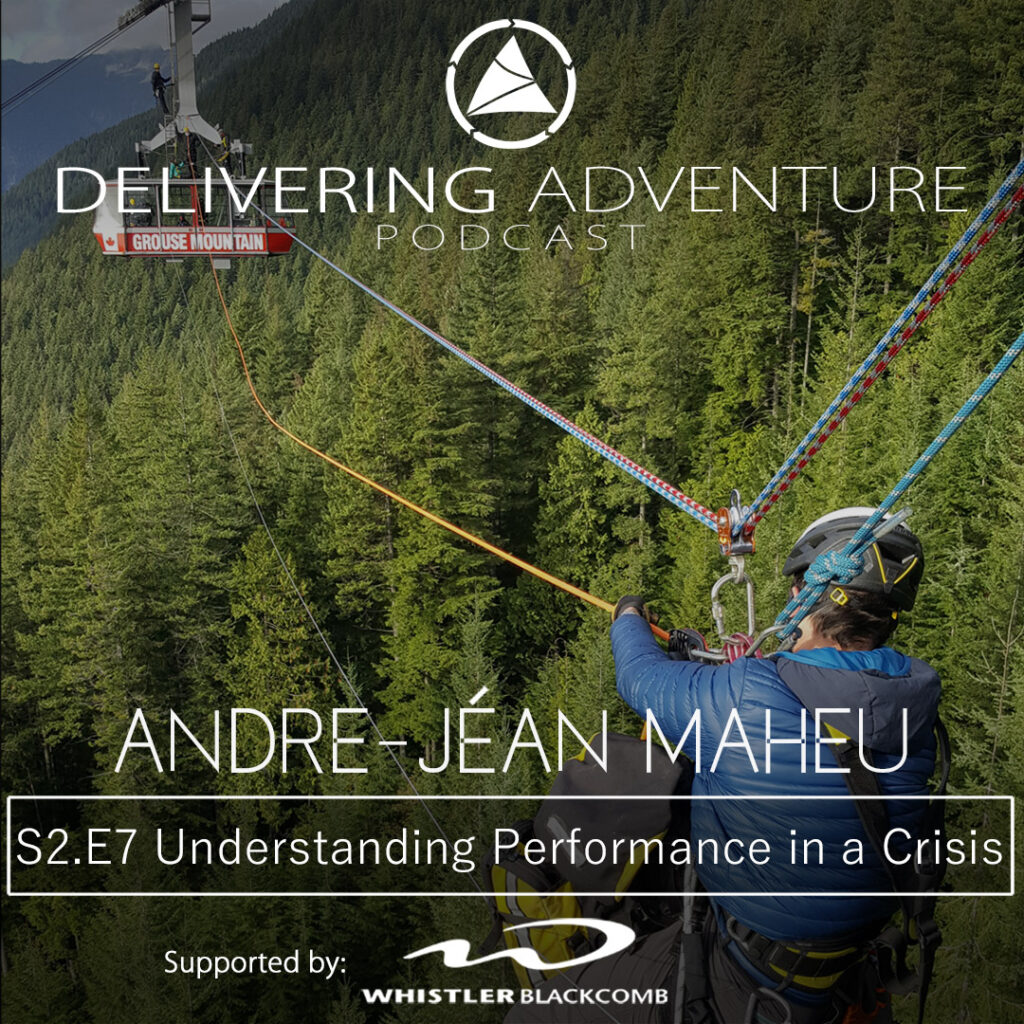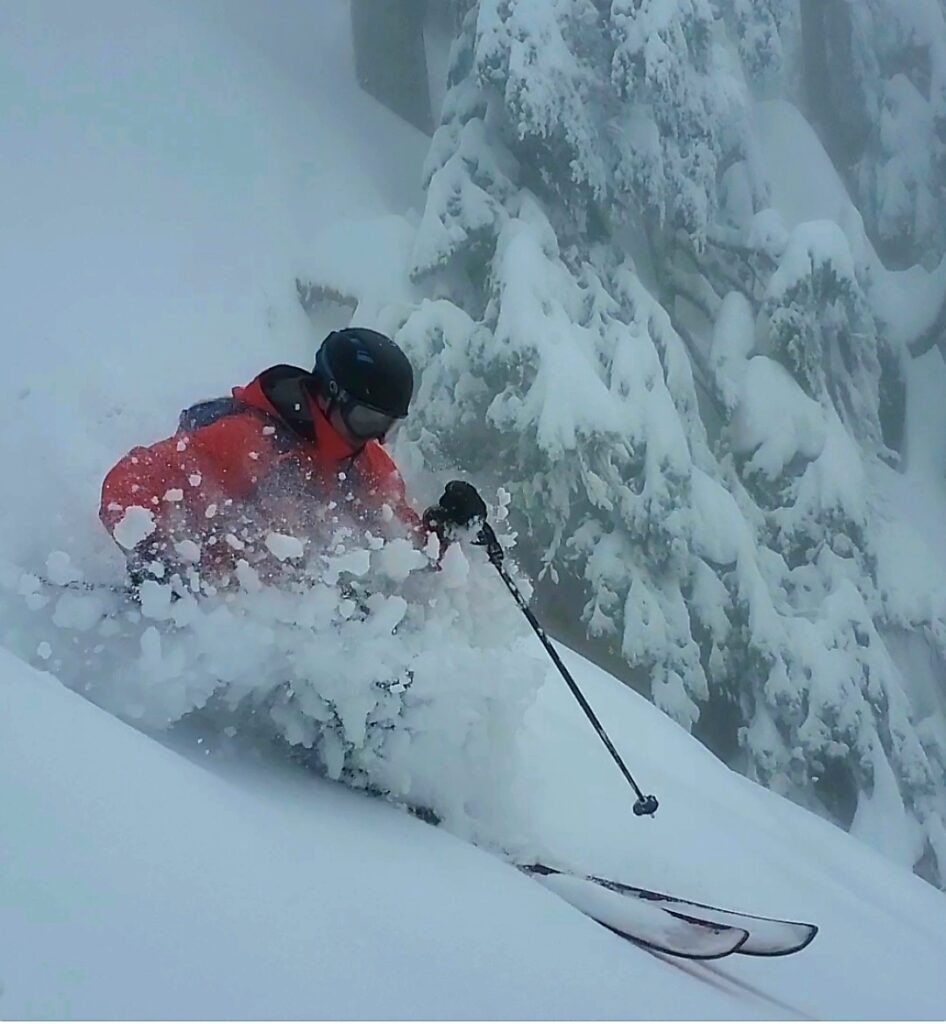
When it comes to adventure, a crisis can come in many forms ranging from getting lost, getting injured, pushing well past our capabilities and being faced with the prospect of disaster. It’s fair to say that being able to navigate through a crisis if one happens, is an essential skill for delivering adventure.
In this episode, we are joined by AJ Maheu to gain a deeper understanding of what happens to us in a crisis and how that affects our performance. AJ taps into his extensive adventure industry experience as a ski patroller, guide, first aid instructor, paramedic, avalanche forecaster and adventure educator.
Guest Bio
AJ Maheu began his career in the outdoor industry over 30 years ago. After spending a decade instructing, guiding river trips in Québec, and hikes from Alaska to the Andes he shifted his focus to emergency response in remote settings. He worked as a paramedic on worksites on Baffin Island and began a 20-year-career teaching wilderness first aid. He has taught emergency preparedness and first aid in multiple adventure travel guide programs in 6 different colleges and universities across the country.
AJ Maheu is an avalanche professional and member of the Canadian Ski Guides Association. He has also worked as a professional ski patroller for the past 20 years. He is active in many spheres of the avalanche industry including forecasting for industrial operations, search and rescue, and ski resorts as well as instructing and guiding.
AJ runs the North Shore Snowpack YouTube channel, providing weekly snowpack information to backcountry users and is a brand ambassador for Nano Traino, manufacturer of high quality, packable emergency evacuation toboggans. When not working, he is busy delivering adventures for his 2 boys, taking them on family adventures.
Guest Links
North Shore Snowpack YouTube Channel: https://youtube.com/@northshoresnowpack?si=eZClzV6KePi3hYwb
Nano Traino: https://nanotraino.com/en/
Key Takeaways:
Definition: According to AJ, a crisis is when we lose control. We may have had a critical period before we lost control where we were holding things together. During this critical period there is usually an element at risk like our physical well-being, or the safety of others. However, if that situation deteriorates, that element at risk is compromised and we can no longer keep things together and we can end up in a crisis.
Ownership: During a crisis we end up going from a proactive state to a reactive state. There is also usually an element of ownership where the person at the center of the crisis feels a level of responsibility for what is going on.
Subjective: A crisis is a very subjective event. Two people can be in the same event and have a crisis for different reasons. Of course, two people can also be in the same incident and maybe only one of them has a crisis.
During a crisis: Physiologically we get a surge of adrenaline which prepares us for action. This puts us in a state of fight or flight. This causes our muscles to tense up and leads to tunnel vision. It becomes hard to analyze mentally as our capacity to process everything that is going on is reduced. Eventually we can become physically incapacitated.
Managing others: It can be very difficult to manage people when they are experiencing a crisis. 10-20% of people are predisposed to act appropriately in a crisis. That means that when people are faced with a crisis, 80-90% of people will experience some level of paralysis or loss of performance.
Unreasonable: When people have adrenaline flowing through their bodies and they are gripped with panic, it is impossible to reason with them. This means that people may need time to process things before debriefing them Also, trying to downplay their feelings can backfire on you as AJ learned.
Follow or Subscribe
Don’t forget to follow the show!
Share & Social Links
https://linktr.ee/deliveringadventure









